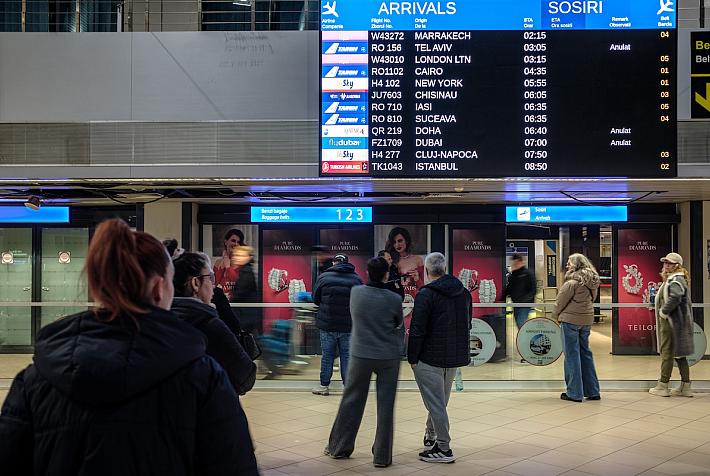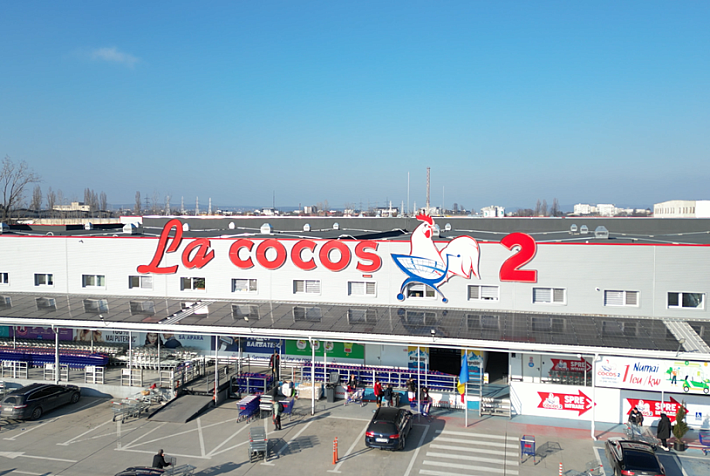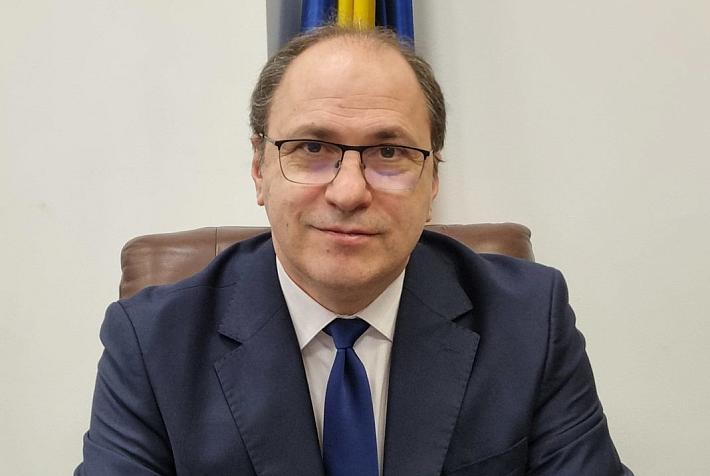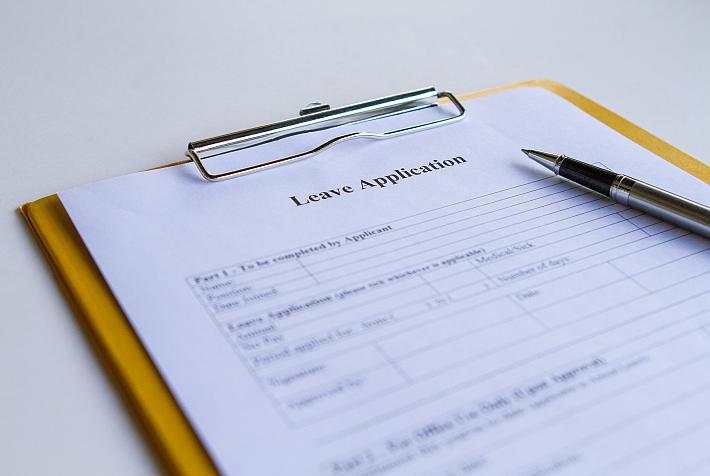Markus Marquard’s two universes
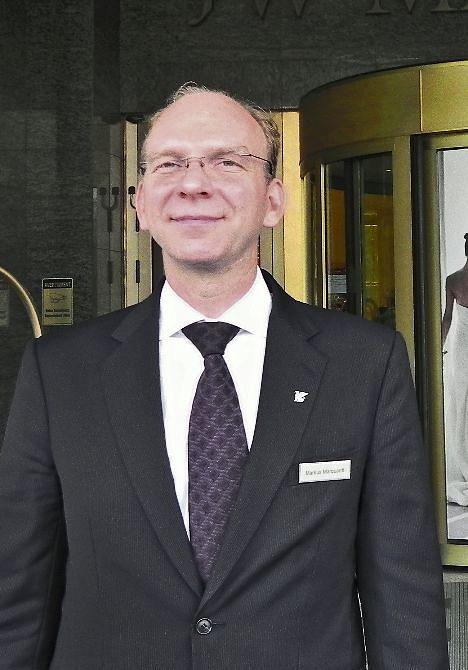
In an alternate universe, Markus Marquard would be a happy farmer, doing his ecological farming somewhere in Italy, Tuscany for example, raising cattle and horses and making his own wine. He would probably also run a small guesthouse, or some sort of local restaurant with no menu, but delicious food, in which the star dish would be the roast duck, cooked the Bavarian way, just like he learned it from his mother.
But in this universe, you will probably meet Markus at the hotel, greeting his guests with a smile, talking with his employees, working with his chefs on menus for next year, or just thinking about new ways to make the hotel’s guests return to the restaurants. And he’s equally happy as if he were working on his farm, for he’s one of those people who does what he likes and really likes what he does.
“Be among people, eat good food, and drink good wine. These are my passions. These is why I do it,” says the 42-years old Bavarian, who took over earlier this year as food & beverage manager of JW Marriott Bucharest Grand Hotel, one of the largest five-star hotels in Romania’s capital Bucharest.
He discovered the passion for food and cooking as a child, working alongside his mother in the family’s small Bavarian restaurant. “As a child, I had to assist in the restaurant, in the kitchen, and I discovered that I had some talent and a passion for cooking,” Markus recalls. This newly discovered passion, at the tender age of 12, has carried him all around the world, far away from his small town in Bavaria. “So I decided to do my training in cooking in Munich and I have been traveling ever since.”
His work took him on a culinary journey through Switzerland, Israel, Spain, Germany and even Panama. In fact it was in Panama City where he first started working for the Marriott hotel chain, as an Executive Chef of their hotel there. Then he moved to Mallorca in Spain, to Leipzig in Germany, and then to Budapest, in Hungary. He stayed there for almost nine years and that’s where he made the leap from executive chef to director of food & beverage. This got him out of the kitchen and on to working on strategies rather than dishes, but he finds this just as rewarding.
“In a nutshell, I need to overview the food and beverage operation, which consist of various departments. It starts with the kitchens, the events, the bars, the restaurants. A lot of my job is working on strategy, culinary strategy. For example, what we are cooking for Christmas,” he explains.
At the JW Marriott Bucharest Grand Hotel, he coordinates four restaurants, each with its own concept and with its own executive chef, two lounge bars, plus the conference rooms and the hotel’s catering business. In total, some 150 employees which generate about 45% of the hotel’s revenues, or some EUR 11 million a year.
But for Markus, it’s the people, not as much the numbers, that count, be those employees or guests. “This is all about people. This is why I’m not working in a bank, counting money. This is not a one-man show. Everybody works together, as a team,” he says. “It’s such a great feel when you can leave your print. After dinner, when you meet happy guests and a happy team as well, you can say that has been a great day.”
But it’s no easy task to keep guests happy and returning. This requires a lot of planning ahead and a lot of market research. A good food & beverage manager must always be up to date with food trends, beverage trends, what is going around on the market. He must anticipate and decide in September what his guests will eat in the hotel’s restaurants in February. “You got to be ahead of the game,” Markus sums it up.
But he likes that, he likes talking to people, and going through markets and visiting wineries to discover new wines for the menu. He enjoys his culinary travels, which he started as a student, backpacking through South-East Asia and Australia, each one revealing new places and new food.
The one food experience that made a mark on him was in Sicily, in a small restaurant which didn’t even have a menu, but served a wonderful fresh seafood. He also likes the street food stalls in Asia, where he had authentic Thai food, or the small restaurants around the markets in Barcelona, with simple, uncomplicated food.
He enjoys visiting vineyards and discovering new wines. “When you go to a winemaker and then he lets you taste his wine and explains it, it’s a great experience. This is the fun part of the job,” he says.
But if it’s one thing he misses from his days as a chef, it’s the actual cooking and talking to the team about what they are going to cook. He doesn’t get to do that anymore, as each of the restaurants he supervises has its own executive chef.
He also found a positive side to that. “I cook passionately at home. My wife is really happy and doesn’t complain anymore. I spoil her,” he says. As an executive chef, he rarely felt like cooking at home. Now, cooking is not a job anymore, but a way to relax. “For me cooking is a creative process but with very clear steps, so it’s very relaxing. If somebody else who wants to relax reads a book, or starts to paint, well, I cook.”
Often he gets inspiration for cooking just by going to the market to buy fresh vegetables. He prefers going to the markets, which are lively and full of local flavor, to shopping at the supermarkets. He is yet to try the Bucharest markets, but he tried some of the Romanian dishes and enjoyed the “sarmalute”. “I like very much the sarmalute. Where I’m from, in my mother’s Bavarian restaurant we have something similar, but they’re not so fine. They are big stuffed cabbage and the flavor is different.”
His favorite dish to cook remains the roasted duck, which he prepares in the traditional Bavarian style. It takes quite some time to cook it, as there’s a whole process behind it, and there’s always a great mess in the kitchen afterwards, he says, but the result is very good.
When not cooking, he loves spending quality time in nature and discovering new places, especially in the countryside. He can’t wait to discover more of Romania and of its places, such as the Danube Delta. It’s great that it takes only 45 minutes from Bucharest to get somewhere in the countryside, he believes. “I work in large cities but I grew up in the countryside, so this is what I need to balance myself.”
That’s why it could have gone either way for him. If he hadn’t taken this career path, he would have liked to become a farmer. “I would like to do something with my hands and be in the farming business, have the cows and the horses and everything. It would have to be something ecological, with a sense behind. There’s still time.”
By Andrei Chirileasa, senior editor, andrei@romania-insider.com







